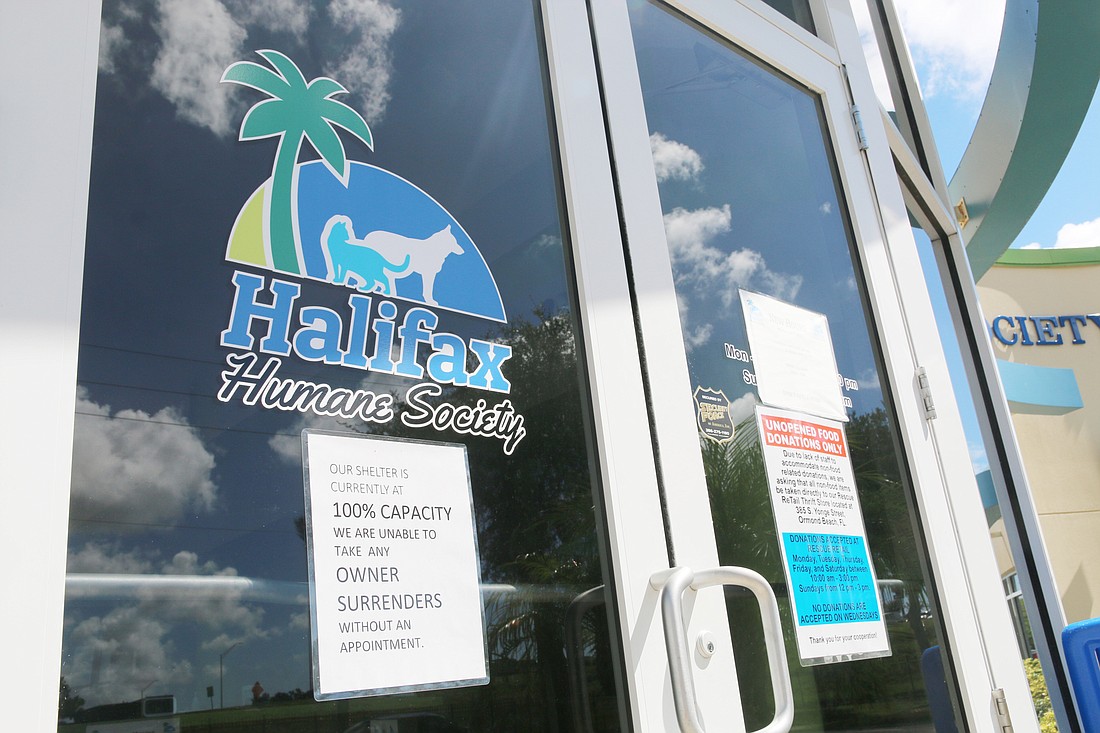- February 20, 2025

With an average of about 375 animals daily, the Halifax Humane Society has reached the maximum number of animals it can house.
That already is an "uncomfortable capacity," said Barry KuKes, community outreach and marketing director, and yet, there were times in frequent weeks were capacity topped 600 at the shelter located at 2364 LPGA Blvd. Kitten season, which started May 1, and owner surrenders were the main reasons for the influx of animals.
"It's a hard thing for us because if we keep telling people, 'No, we won't take your animal,' sometimes they just walk out the door and just hang [the leash] on the fence, and they just walk away. They leave it there — they just walk away."
Sometimes, owner surrenders are justified: The pet owner's new landlord has banned pets and given them little notice to find a new home, difficult in the current market, or they have found themselves facing health or financial crises. But because they're at capacity, often times these animals are placed in pop-up kennels, or housed in offices alongside staff.
Ideally, the shelter would like to keep their numbers to 200, but KuKes said that is likely not realistic these days.
"We were at 200 or less during COVID," KuKes said. "People were home, keeping their pets, not surrendering, coming out adopting, because they wanted a buddy as they were stuck at home. We actually got down to one point, 17 animals. ... It was like a ghost town. It was wonderful."
Unlike many industries, the Humane Society's goal is to get out of business, he added. That would mean all animals would be adopted.
One of the challenges the shelter faces now is that people cannot afford to keep their pets, and oftentimes those that come to the shelter have special needs, such as they don't get along with other animals or aren't good with children. That shrinks the pool of potential adopters.
Staffing is also a challenge, KuKes said.
How can the community help? Cash donations are always accepted, and are preferred over things like bedding and blankets. Volunteers are also appreciated, KuKes said. Though the shelter has over 1,000 volunteers registered, only about 150 are active. And of those, about 50 volunteer on a regular basis.
And if members of the community are thinking of adopting a new pet, KuKes said they should come in person to see which animals are available at the shelter. They may come in interested in one dog, and find they connect with another one.
"Some dogs will usually find you, versus you find them," KuKes said.